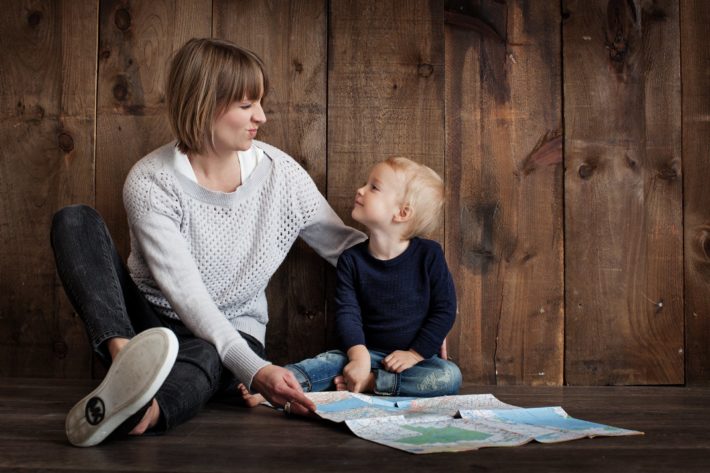For some people, the hardest part of being a parent is knowing when and how to let go. When it comes to the psychology of babies and young children, everyone talks about the importance of attachment and bonding. Of course there is good reason for this, and it can’t be emphasized enough that the emotional connectedness you have with your child is crucial for her current and future mental health.
But that is only half the story. For your child to grow and develop normally from a psychological perspective, you also at times need to take a step back and allow her to experience the world alone. Sometimes kids need a bit of space! Of course this statement is open to misinterpretation. The process of separation is gradual and incremental. Little by little, from when your baby is a few months old, she should sometimes be given the opportunity to manage things on her own. That may start from as little as a few seconds or minutes away from you in the beginning. Although kids need their independence at various times in different ways, they don’t always ask directly for it. Some children and teenagers demand their independence and protest loudly when you don’t give them enough freedom and space. Others, however, are afraid of it and they cling to you long after the extreme closeness to you is actually in their best interests.
How much time apart does your child need from you?
Psychologists are often asked if it’s ok for them to leave their child, for example, to go on a week long trip. The answer depends on so many factors, like the age of the child, home circumstances, substitute caregivers, the child’s resilience, temperament, physical and mental health and so on. Often the requirements of mainstream schooling offer a sensible, age-appropriate guide to what children can and should be able to manage. That means most 4 year olds can manage a few hours away from home every day. By the age of twelve, 3 day school camps are the norm. That means that somewhere in between the ages of 4 and twelve years, days and nights away from the parents should have been negotiated successfully. Depending on your child and your circumstances, she may struggle to leave you. Your job as her parent is to help her with this. If you are leaving the country – without her – indefinitely, then she is right to protest because it will almost certainly not be in her best interests. But a few days away whilst she is in the care of someone she trusts may actually strengthen her psychologically and improve her state of mind.
Following your child’s lead can – sometimes – be a useful way to help you to navigate the journey towards healthy psychological separation. A teenager might demand time away from you in order to be with his friends. That is precisely what he should be doing from a developmental perspective. It’s more complicated when your child resists separating from you. Some young children fight against weaning, going to school in the mornings and leaving their moms for any reason. The natural trajectory towards development moves a child towards being more and more independent of her parents. If this isn’t happening and if your child is holding onto you for longer than most of the other children the same age, it’s worth talking this through with a psychologist who has training and experience in this area. For more guidance, email Jenny Perkel – clinical psychologist – at jenny@perkel.co.za. Or visit the website for more about child mental health.
